The BCPCS team has partnered with various CS education-related research projects and PhD students at IU Bloomington to gather and adapt CS education resources for preservice teachers. Our current offerings include specialized curriculums for preservice teacher education, such as Introduction to CS and Data Science for Education. Additionally, we have integrated K-8 CS, Computational Thinking (CT), and Artificial Intelligence (AI) curriculums into professional development materials for preservice education. These curriculums were developed by research groups like CS for Social Good, Rethinking Circle Time (ReCT), AI Goes Rural, and Primary AI. We are committed to continuously exploring and designing more CS curriculums to enhance preservice education.
Curriculum Resources
Educator Prep Workshop Series
In Spring 2025, we collaborated with the Indiana Learning Lab and created an Educator Prep Workshop Series to promote a broad range CS education integration.
Currently, the series include four lessons:
- CS for Social Good: Integrating CS and PBL
- CS Unplugged: Teaching Computer Science Without A Computer
- Introduction to Computational Thinking (CT): CT Integration Elementary
- Introduction to AI in Education: Understanding How AI Works and Ethics
Please log in to the Indiana Learning Lab to access the series.
Curriculum
Introduction to CS for Preservice Teachers
With Indiana’s adoption of a computer science strand within the Indiana Academic Standards for Science, it is vital that those entering the teaching profession have a basic knowledge and understanding of computer science topics. This computer science unit, consisting of 4 1-hour lessons, has been designed specifically for IU Bloomington’s required preservice education course EDUC-W200 Using Computers in Education.
Topics addressed in the unit include computer science history and stereotypes; computational thinking concepts; computer science integration across the disciplines, particularly for creativity and problem-solving; machine learning and artificial intelligence; and the impacts of computer science on society. Participants will be encouraged to reflect and evaluate through relevant scenarios and discussion, and will practice in activities to deepen their skills and understanding.
Introduction to CS for Preservice Teachers Slides
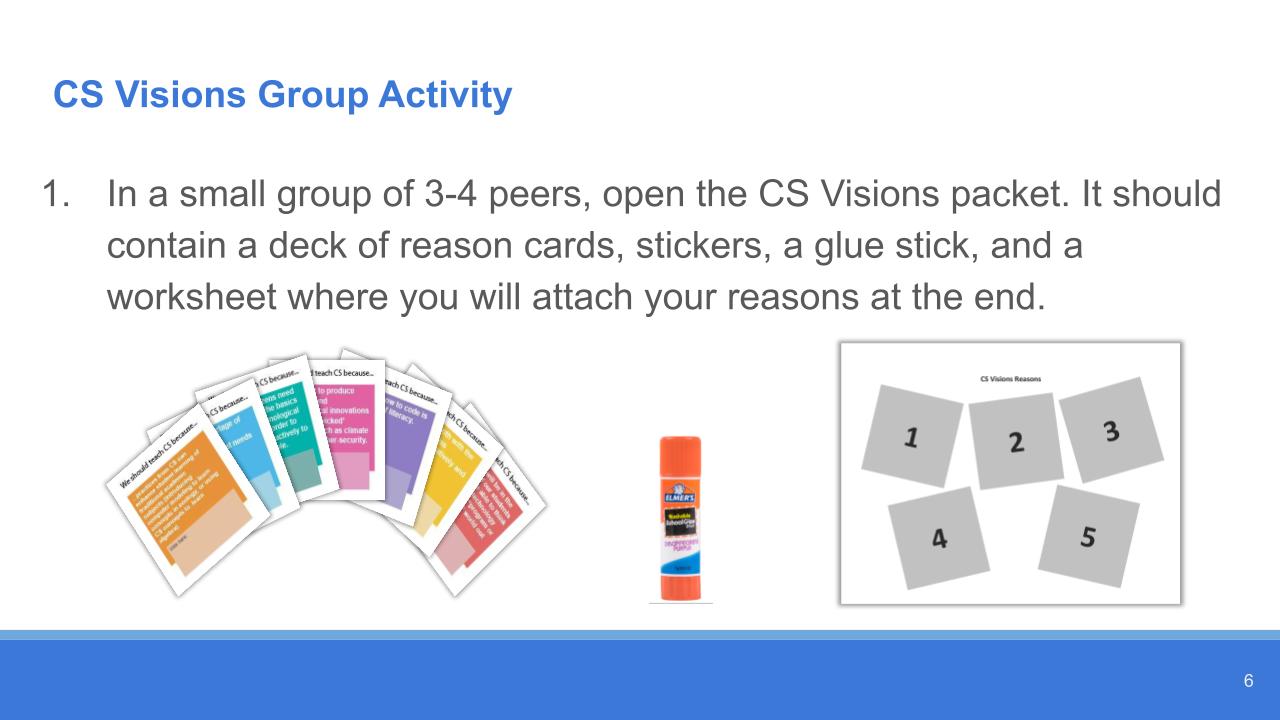
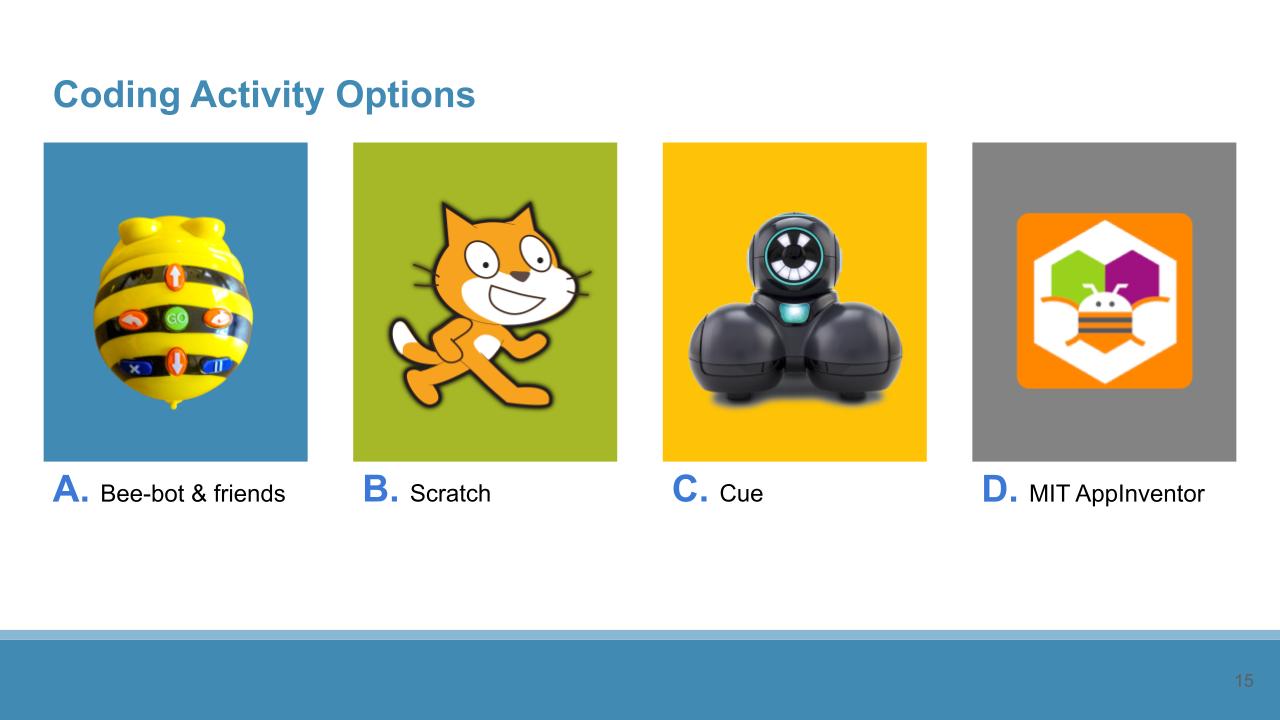
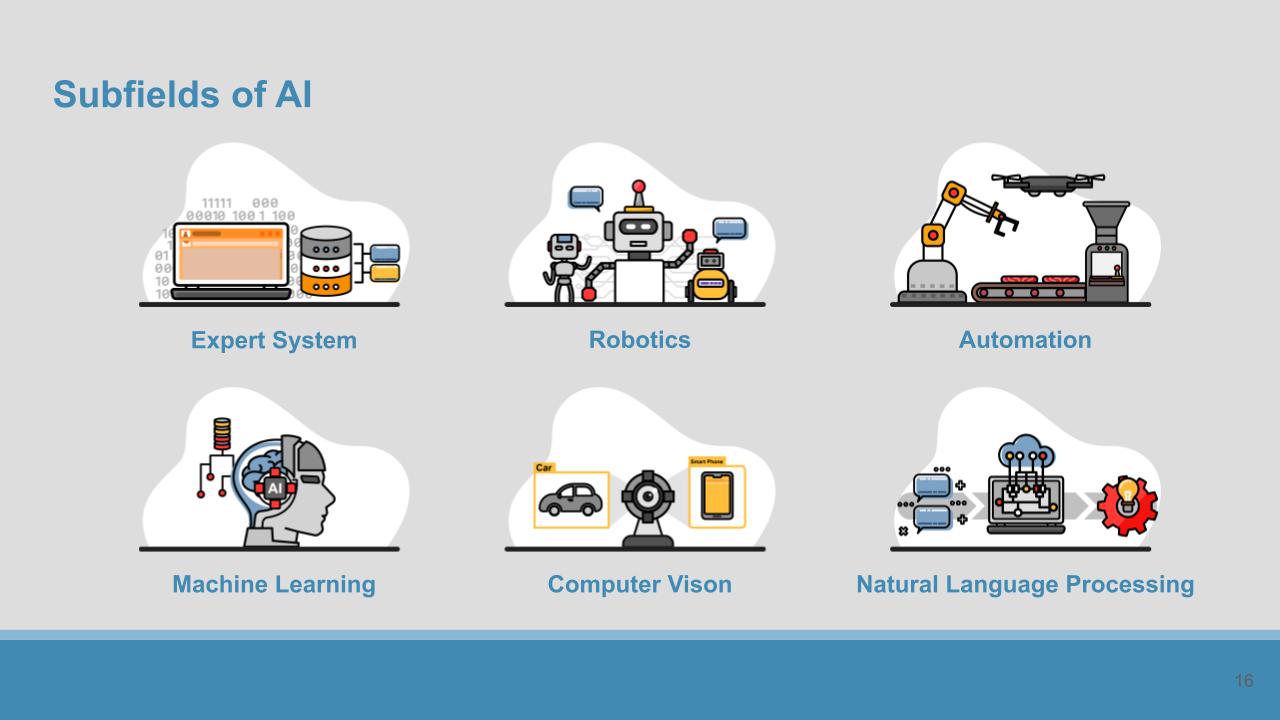
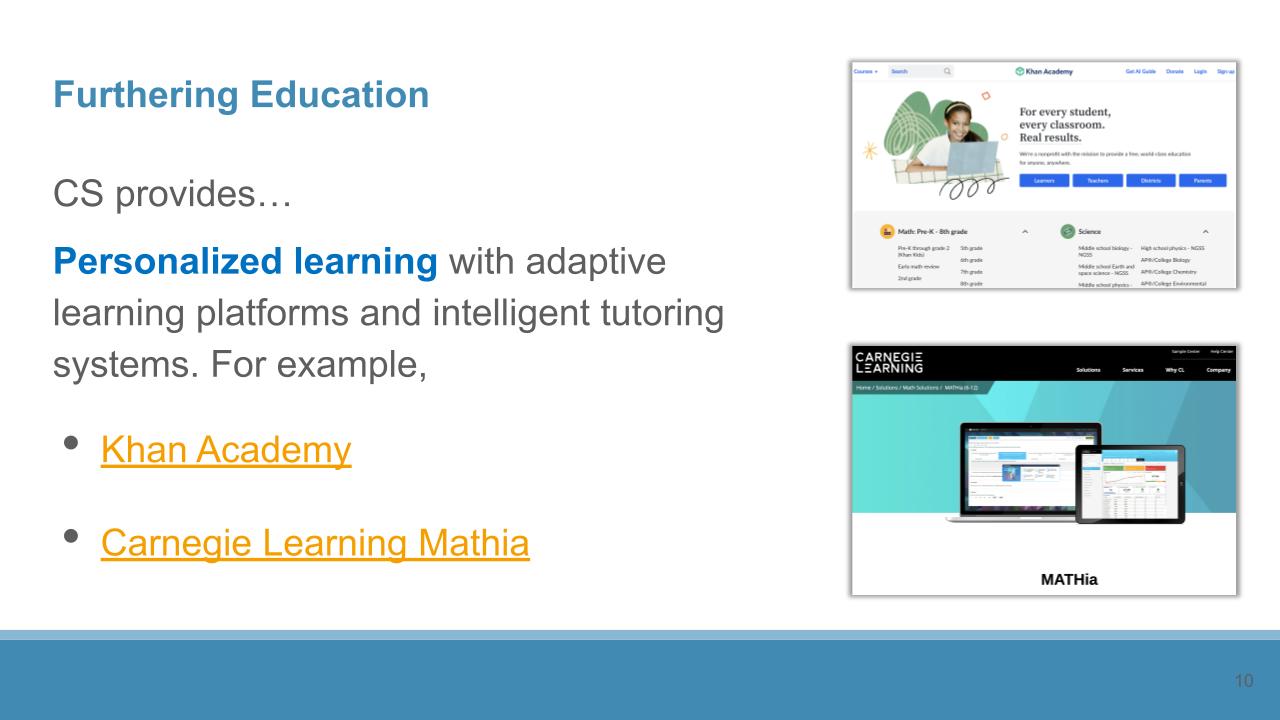
Lesson plans designed by Matthew Brown, PhD Candidate in Instructional Systems Technology
CS for Social Good
Block coding is a way of learning programming in K-12. It can be done through plugged activities using Scratch or unplugged activities. One way to implement Computer Science and teach students coding by through having them design solutions to real-world problems. The CSforSocialGood curriculum consists of two units. The first unit is Introduction to Block Coding, and it includes 9 lessons. The second unit (8 lessons) focuses on Problem-Based Learning (PBL) and integrates block coding to solve real-world problems.
The workshop includes unplugged and plugged activities using manipulatives such as sorting cards and Scratch. These activities demonstrate the programming concepts and how they can be taught in the 6th-grade curriculum through problem-solving activities.
Lesson plans for 6th-middle school students
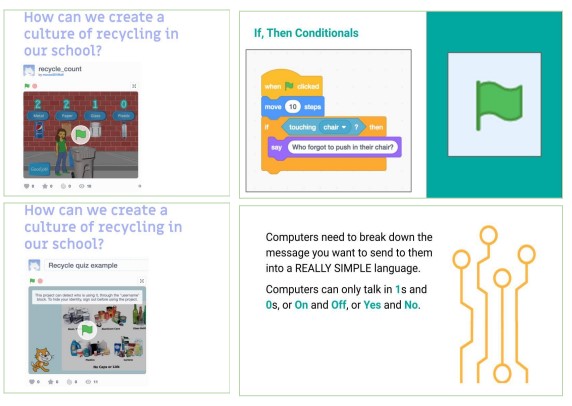
Lesson plans designed by Dilnoza Kadirova, PhD Candidate in Instructional Systems Technology
Rethinking Circle Time
Computational Thinking (CT) is a set of characteristics needed to have a systematic way of approaching a problem so a computer can solve it. Basic elements of CT include pattern recognition, abstraction, decomposition, and algorithm design. This workshop targets the preservice teachers focusing on K-2 learners and introduces how K-2 educators can integrate computer science into literacy classes.
The workshop includes unplugged, embodied, and Scratch Jr. activities using manipulatives such as picture cards, direction cards, and circle diagrams to demonstrate how to integrate literacy to support K-2 learners’ development in CT
concepts.

Lesson plans designed by the research group Rethinking Circle Time (ReCT)
AI Goes Rural
AI Goes Rural develops AI introductory lessons for 6-8 learners. The purpose is to emphasize the importance of visualization and representation with computers, how computers perceive and learn from data, provide opportunities for learners to apply AI concepts to real-world applications, and consider the ethical implications of AI.
The workshop provides various hands-on options to learn how AI (ML, NLP, Computer vision) can help our society and solve daily problems. The options include step-by-step instructions that support both preservice teachers and 6-8 learners.
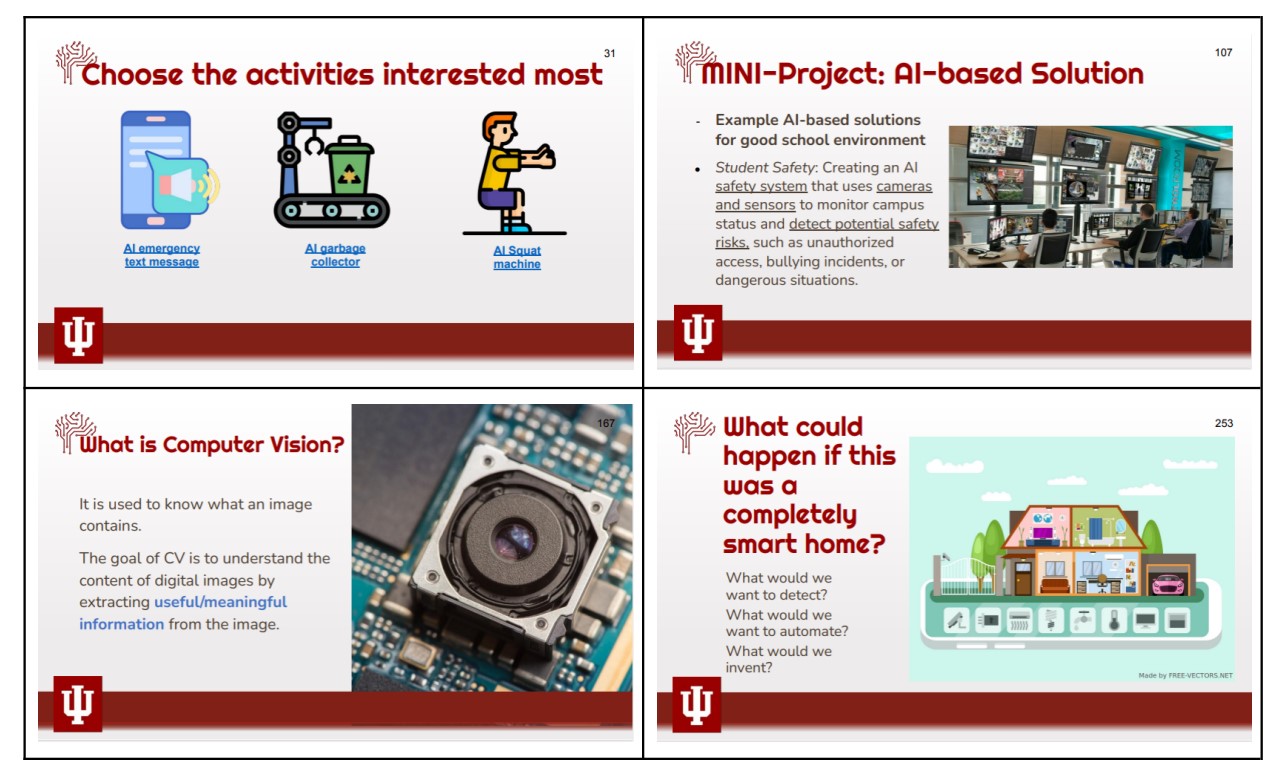
Lesson plans designed by the research group AI Goes Rural
Primary AI
Artificial intelligence has become a fundamental technology with a transformative impact on our society. It is crucial to foster favorable attitudes and outlooks toward AI among elementary school students, making the design of educational experiences for this age group exceptionally significant. PrimaryAI represents a comprehensive AI and science curriculum integrated with an immersive learning environment. It introduces upper elementary science students to various AI concepts such as perception, planning, robotics, and machine learning, while also addressing ethical considerations related to AI.
The workshop consists of an introduction to Artificial Intelligence, an exploration of the Primary AI curriculum, its objectives, and alignment with standards, as well as example activities that can be implemented with students in elementary classrooms.

Lesson plans designed by the research group Primary AI
Data Science in Education
One of the current CS education focuses is the integration of Data Science (DS) concepts into K-12 curricula, as reflected in one of the major concepts in the CSTA Standards for K-12: data and analysis. DS is an emerging field of interdisciplinary integration in three areas: Mathematics/Statistics, CS, and domain knowledge. In our daily lives, technologies are constantly collecting and using data (e.g., website browsing history, shopping history). Artificial Intelligence (AI) is an increasingly critical element of our daily lives. AI relies on data to generate decisions and predictions. Therefore, where and how we use data to inform these models, data science, is a critical topic for future generations to ensure that AI is ethical and representatively addressing the problem. By introducing DS to K-12 learners, they will be able to gain awareness in this data-driven world.
This is a three-unit lesson design targeting preservice teacher education. Each unit has two 75-minute courses with basic concepts of DS, AI, and data literacy through hands-on activities.
DS Education for preservice teachers lesson plans
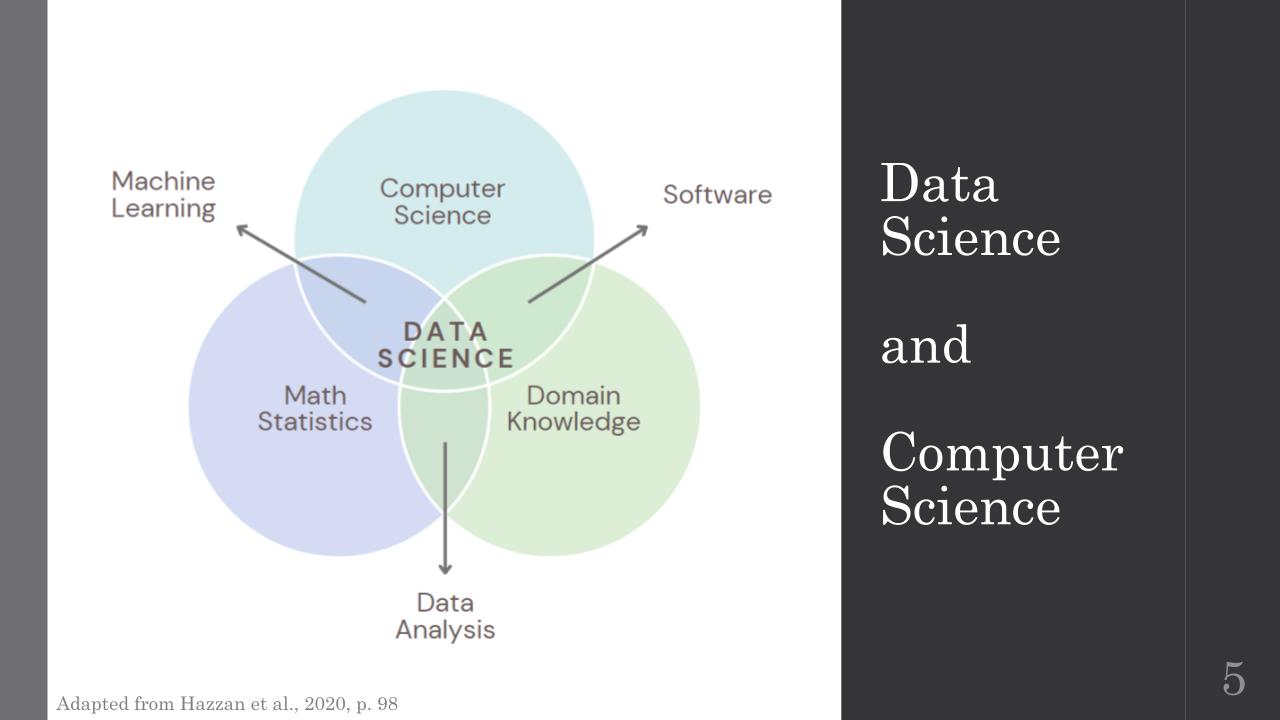
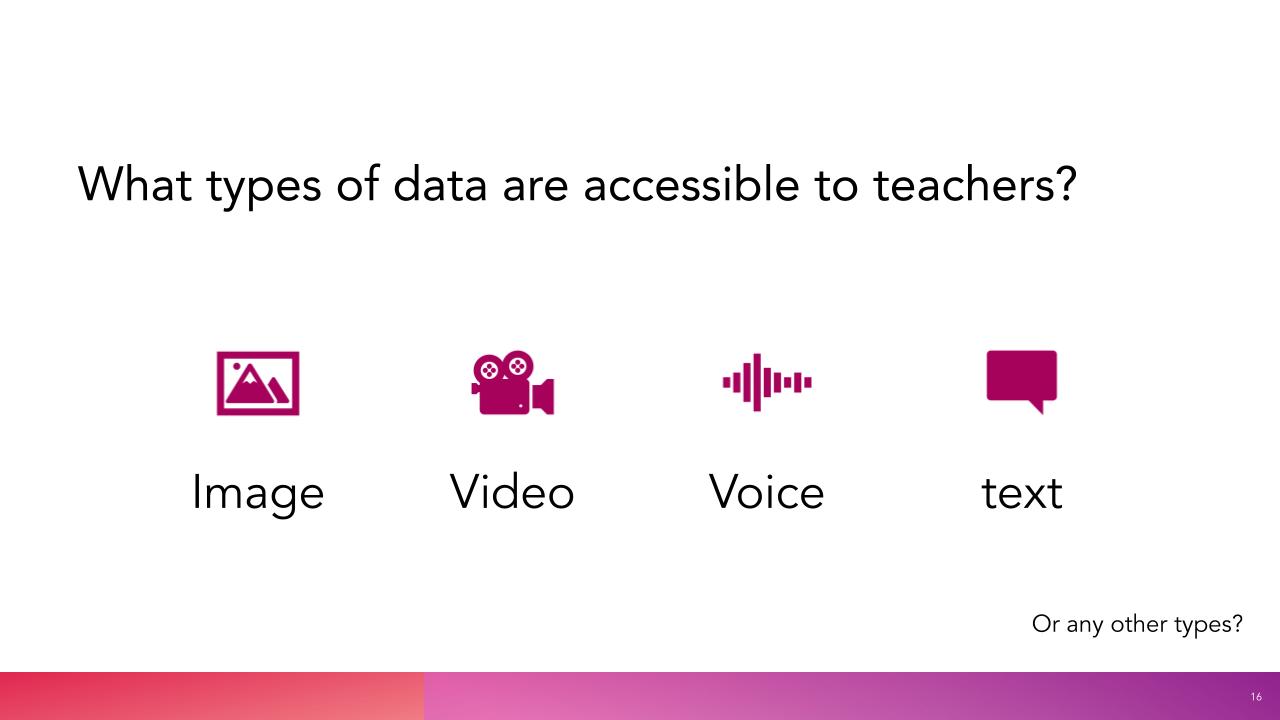
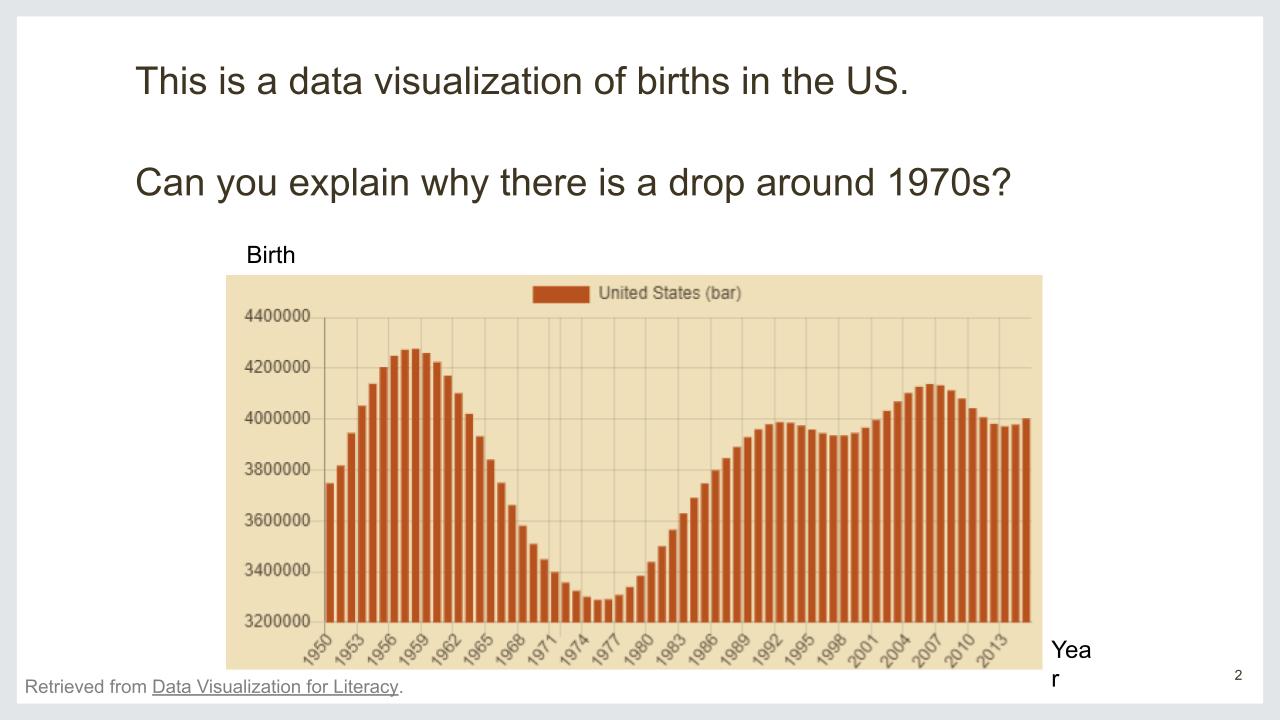
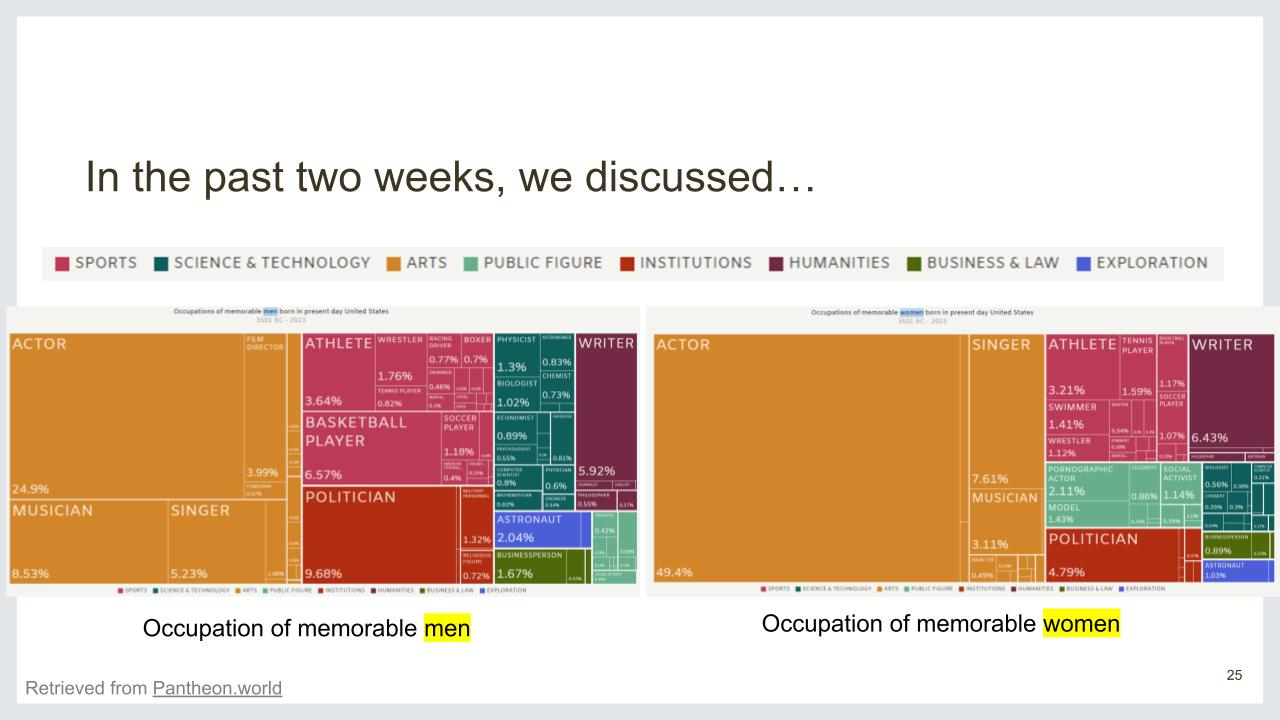
Lesson plans designed by Lin Chu, PhD student in Instructional Systems Technology

